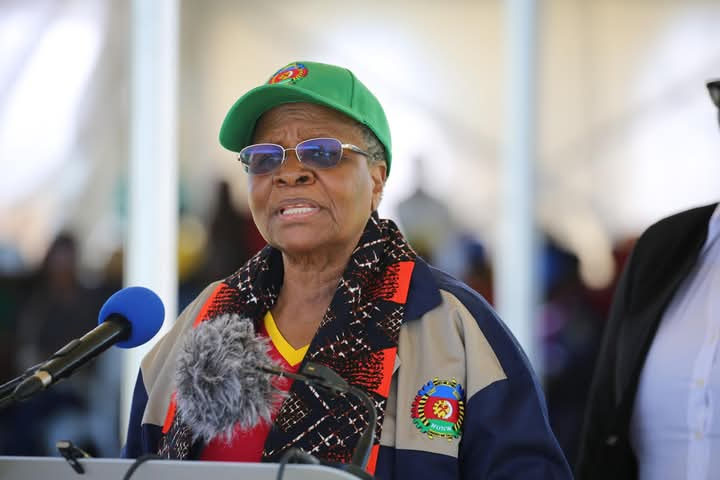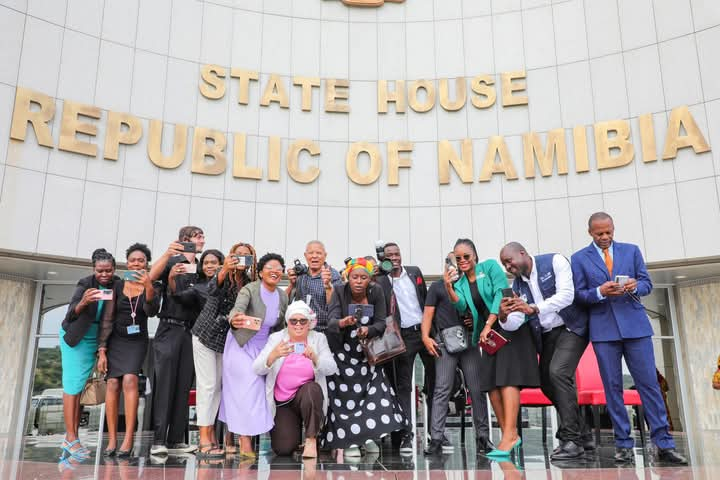NATURE is not kind to Namibia. Floods and drought are regular and expected events in this country. We have had two consecutive and devastating floods recently – 2008/9. Then the so-called global economic meltdown enters the scene, further complicating the problems.
But are we learning any lessons from all these?Surely we are not just hapless victims of nature or the international economic system. We don’t have to wait for nature to strike before we can take action. There is room for manoeuvre and steps we can take to mitigate the effects of floods, drought or even the fluctuations in the world economy.In retrospect we have allowed ourselves, for example, to be too much exposed to the international economic system; call it globalisation if you like. Almost all our major economic activities are geared towards the export market – mining, fishing, beef etc. Even the country itself is on ‘sale’ to attract tourists. Putting these together, it’s clear we don’t have a lot of control over these activities.We can’t force the rich to buy our diamonds, the Spanish to consume more of our fish or the Germans to eat more of our beef. Neither can we force that elusive tourist to come to Namibia. And as an aside, let me say we shouldn’t waste our scarce resources on useless ventures thinking that tourists will flood Namibia during next year’s World Cup in SA. These are all obvious facts. But we have allowed this scenario to continue even though we knew that it was not sustainable in the long run. Why?It fitted well with the immediate interests of the new elite. Because as long as there was enough money coming in, then the elites were always assured of its first world lifestyle – hefty salaries, bonuses and other perks. Even in this very hard economic time, the elites are still insulated from its effects. The people who are losing jobs are those at the lower end of the salary scale – the labourers. And during years of drought or floods the elites don’t suffer the same loss as the rural poor. The poor can lose all their belongings – crops and livestock – in one go as we are witnessing now with the current floods in the north of the country. Which then leaves the majority our people at the mercy of central Government or benevolent foreign governments and charitable organisations to pick up the pieces.Government has budgeted N$109 million for flood aid this year but ironically at the same time plans to build a new office for former President Nujoma for nearly half that amount and, of course, purchase a new Falcon jet. History seems to be repeating itself here. During the devastating drought of 1992/3 Government budgeted some N$133 million for drought relief and then went on a spending spree for its first Falcon. Relief interventions are commendable as short-term measures. But Government should stop behaving like a charitable organisation that only intervenes when nature strikes or when the economy gets sick. Because meeting basic needs is a matter of justice and not charity and we should instead start behaving like a developmental state which is repeatedly evoked by some of our Government ministers. One doesn’t, however, see its signs. In fact there are no developmental states in Africa unlike in Asia – the Ghana versus Malaysia contrast. What is to be done then? Although we don’t have much control over nature or the structural nature of our economy; we are not hapless victims either. But we can still export our products and attract tourists to earn foreign currency but we must learn to save and build enough reserves like Botswana has done with its diamonds or Norway with its petro-dollars for a rainy day. That demands that we have to change our habits from being a purely consumer society to a saving nation.Second, if anything, successive floods and droughts have demonstrated that different socio-economic groups are affected and impacted differently by these natural disasters. Yes, rural people lose crops and livestock and thus go hungry or starve to death but that doesn’t mean there is no food available in the rest of the country. They can’t access food because they don’t have money or other sources of income to do so (Amartya Sen thesis on entitlement). The message is simple: develop the whole nation not just enriching a few individuals and also diversify the economy so that we can move from being a cemetery to a workshop of development. That’s the best remedy of all against floods, drought and globalisation.
Stay informed with The Namibian – your source for credible journalism. Get in-depth reporting and opinions for
only N$85 a month. Invest in journalism, invest in democracy –
Subscribe Now!










